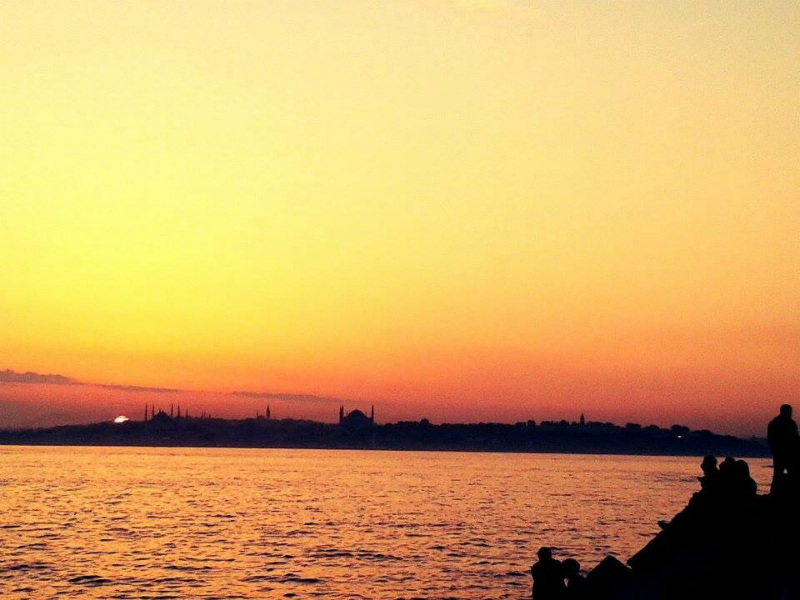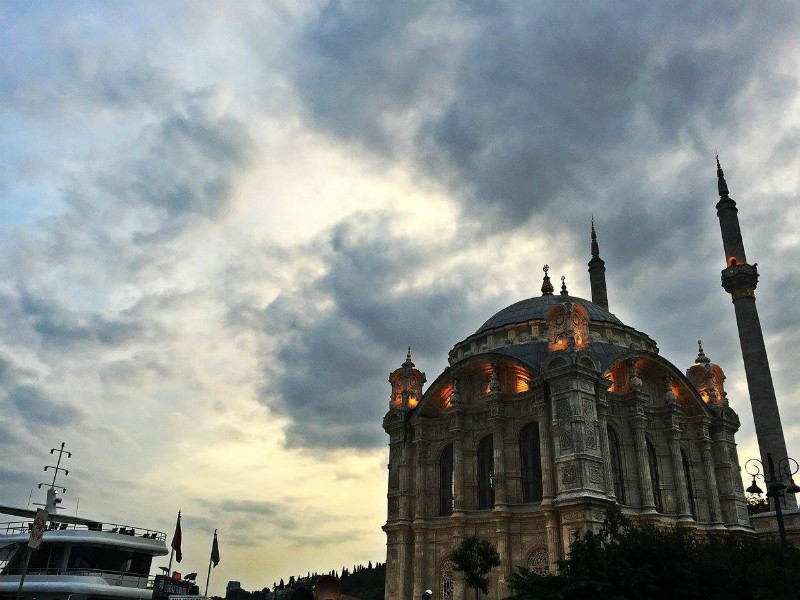Let’s first and foremost acknowledge the great privilege of being able to choose your place of residence. Most people are not granted the luxury of living somewhere simply because they find its culture intriguing and are captivated by the local language and food. The majority of the world’s population is concerned primarily with earning enough money to survive and sufficiently providing for their families. If a particular city or country better caters to that end, then they will by all means attempt to relocate, but many are not afforded that option. And so those who on a whim can choose the place in which they’d like to live, are extremely fortunate from the outset.
This initial point is of course not meant to diminish the importance, and even urgency, of the question with which every foreigner (and, no doubt, native) living in Istanbul has at one time or another grappled: To stay or go? The reasons for staying vary from education to work, love, art and adventure, while the reasons for leaving may include the ever-plummeting Turkish Lira, over-crowdedness, dwindling job opportunities and, most pressing at this very moment, the daily (and seemingly growing) threat of terrorism. It is this last factor which I’d here like to confront, as it applies not only to Istanbul, but all major cities around the world. We are all affected, in one way or another (whether immediately or more remotely), by the looming presence of terrorism.

While we’ve all, as foreigners living by choice in Istanbul, been asked repeatedly what brought us here and what keeps us here, the question has recently taken on a more bewildered, and even incredulous, tone. Where once it went something like, “How funny, that you would come to live and work in Turkey!’ it now goes something like, ‘What’s wrong with you? Why, when you could live in a more peaceful and prosperous place, would you choose to stay here, in such a volatile and tumultuous one?’ It comes at a time when many Turks, overcome by a general sense of foreboding in their home nation, are seeking job and educational opportunities abroad. Hence their understandable confusion at a foreigner’s decision to come and stay in the very environment they wish to flee.
So what are we to make of the more fortunate foreigners who have other, seemingly safer, more lucrative options elsewhere, but nonetheless choose to live in Istanbul? Are they naive? Crazy? Morbid adrenaline junkies? Or are they generally content and well-informed individuals who have accepted their kismet, and the unswerving fact that when their time comes, it comes? Because of the complexity of each person’s decision, and of the unpredictable nature of terrorism, these questions remain ultimately unanswerable. Were one to remain in Istanbul despite the urging from family, friends and colleagues to relocate, and then go on to perish in an attack, that individual’s decision may in retrospect appear negligent and foolish. And yet, were that same ex-pat to return to their hometown, only to subsequently die in a car accident, those concerned would be reduced to silence in the face of life’s mysterious whims.
The likelihood of being directly involved in a terrorist attack remains marginal at most. To die from the blow of fallen furniture is supposedly more probable. And yet we are more fearful of an attack because the thought of it, along with the vivid, broadcasted images, is indeed terrifying. While the threat of falling furniture may be statistically higher than that of a terrorist attack, I’ve never spent any time worrying about it. I have, however, imagined the horror of a sudden blast ripping through the crowds of people I inevitably find myself amongst, whether at a concert, a festival or during my daily commute. This scenario has never crossed my mind while walking around my hometown of 66,000 people.

The psychological toll of terrorism’s threat may be enough reason for some to relocate. Although no one knows where or when the next attack will happen, terrorism is indeed more likely in some parts of the world than others. And of course although avoiding certain crowded areas at certain times (though not always possible) is both a wise and effective basic precaution one can take, the emotional and psychological toll of feeling the need to look over one’s shoulder can be taxing. And so if one would feel more comfortable and at peace in another city or country, and if one were indeed lucky enough to be able to go and live there, such a move may be, for that individual, the appropriate one to make. Like all decisions regarding our health and safety, however, some measures are generally beneficial, while others are harmful, and yet ultimately we remain always susceptible to illness and death. We cannot, that is, escape our innate vulnerability.
And so the foreigner’s dilemma — to stay or go — is in the end a personal one, to be grappled with and resolved on one’s own terms. There is no clear and sweeping solution for everyone. And to reiterate the initial point — even to have the option is a luxury in itself, one sadly not afforded to many. When my Turkish students, most of them 18 years old, ask me why I don’t return home — in a way which suggests that, although they’re resigned to the turmoil, it’s not necessary for me to endure it — the disparity couldn’t be clearer. ‘We’re in this together,’ I want to say — which is at the same time true, and not true. While all humans face the threat of terrorism and war, sickness and death, some, by way purely of mischance and circumstance, are more regularly and harshly acquainted with it.
In the wake of a terrorist attack, there is nothing rational to be said. Senseless violence cannot be explained away. And neither, it seems at least for now, can it be stopped. But moving in the direction of expanded empathy and identification, towards the recognition of humanity as a singular, inter-connected organism, is the only way forward I can see. Just as the passing of a loved one often sparks reflection and gratitude within us, inspiring us to be better people, attacks upon our communities may at best lead us to shared grieving, collective contemplation and mutual compassion. We must reach out, expand ourselves in empathetic embrace and recognize that those who have needlessly perished, in any part of the world, were living lives essentially similar to our own–striving, amidst suffering, to find solace and joy. With awareness that any moment could indeed be our last, we can recognize the mysterious urgency of our every utterance and interaction throughout the day. The way in which we choose to live and treat one another matters in ways beyond our immediate comprehension.










Thanks for the article, which has brought back memories of living in London throughout the 1970s; the Chelsea barracks bombing by the IRA shook the windows of our home. Interestingly, however, the thought never occurred to any of us to leave the capital for a quieter life. The humour got a bit darker though. The general attitude was beautifully encapsulated by a well-dressed lady in Harrods. She had just bought an item and was having it gift wrapped by a friend of mine who was serving her. The Harrods bomb went off at that moment, showering the whole area in lethal shards of glass. Covered in debris, both of them paused for a moment, then the lady said: “I think the blue ribbon would do nicely, thank you”.
Beautifully written article, thanks 🙂